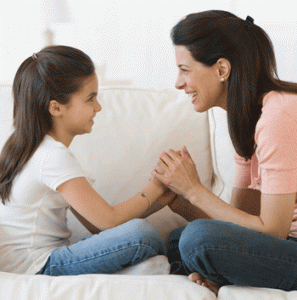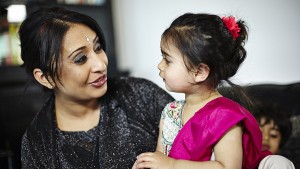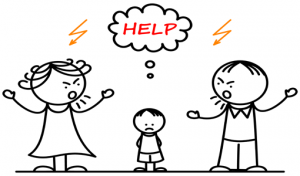Tips to Handle Peer Pressure
Tips to Handle Peer Pressure
Parents’ Role in Helping Their Children Cope with Peer Pressure
Young people between the ages of nine and nineteen are in a very formative stage. They are absorbing everything that is happening around them, which makes the role of parents even more crucial. As far as peer pressure is concerned, only parents can assess their children and take steps to solve this very important problem so that their kids can have a balanced approach towards their friends. Here are a few strategies that can help parents nurture their youngsters’ self esteem so that they can handle peer pressure in a positive way.
Help your children and accept themselves the way they are.
If parents are successful in helping their children believe they are good the way they are, there is no need for them to imitate others. Children and teenagers should learn to be proud of themselves, their thinking, and their physiques. They should know that they are unique and should enjoy their uniqueness instead of following others. Parents, of course, believe all these things about their kids, but they rarely discuss them openly. However, if parents don’t share this, their children will never learn to trust themselves and will blindly follow their friends.
Be available to your children at all times.
A strong connection and frequent communication between parents and children can go a long way in helping children handle peer pressure in a positive and constructive way. Let your children know they can come to you anytime they have a problem. Reassure them that you, too, consider their problems to be serious, and discuss different strategies for dealing with or reducing peer pressure.
Listen before you comment!
It’s imperative that parents listen to their young children patiently and attentively. Try not to interrupt their narration of the problem. First listen to what they have observed and decided regarding a particular issue, then help them to look at the issue from a different angle. Never tell them that their observation or decision is wrong. Rather, show them that there is another side of the coin that may be more beneficial to consider.
For example, if your teenage girl wants to have a late-night party with her friends, but you are scared about their safety, make a compromise and offer some other options, for example arranging a party at your own home or another safe place. Additionally, arrange for the party to take place at a more reasonable time so that the kids can return home before it’s very late. Explain to your daughter and her friends that these measures are for their security.
Teach your kids moral values that will help them to be assertive.
Parents cannot be with their youngsters all the time; therefore, they should teach their children moral values that will mould them into good, strong and confident people. If moral values are taught practically and if parents lead by example, children will absorb those values until they become an integral part of their personality. In this way, parents can help build a strong character in their kids. If this task is accomplished, children will stand up firmly against negative peer pressure; they will be assertive about their own values.
Teach them how to disagree with their peers respectfully.
Mostly children in their preteens and teens are very aggressive and jump into a quarrel for apparently very negligible reasons. There are other children who don’t like to be dragged into an argument and who give in to peer pressure instead. Parents need to focus on this very important aspect of their youngsters’ lives and teach them a variety of strategies for disagreeing respectfully and amicably rather than arrogantly and rudely. Children should know how to maintain the individuality of their personality and be a part of a group at the same time.
Encourage diversity in their circle of friends.
Parents should make a conscious effort to encourage diversity in their young children’s peer groups. If they interact with people coming from different classes of society, different religions, or different regions or countries, this kind of diverse interaction will make them more receptive to learning new ideas and appreciating perspectives different from their own. This diversity will also help them realize that the world is full of unique people and all of them are important in their own way. By the same token, kids will realize that their ideas or approach towards a particular issue are also important and that they don’t need to change them because of peer pressure.
Ignore little things!
Sometimes, parents criticize their tweens and teens for absolutely everything, which makes them feel insecure. When kids feel that they are being criticized all the time, they take it as a threat to their newly found independence. As a result, they start hiding things from parents and behaving rudely. Hence, parents should ignore small, unimportant issues like hairstyles, fashion choices, or even the use of certain words and language. Children will mature and come out of this tumultuous phase of life with time.
http://www.pakparenting.com/1145-2/http://www.pakparenting.com/wp-content/uploads/2016/02/parents-and-peer-pressure.jpghttp://www.pakparenting.com/wp-content/uploads/2016/02/parents-and-peer-pressure-150x150.jpgParenting Digital NativesPeer Pressurechildren,how to handle peer pressure?,Pakistani parents,parents,peer pressure,preteens,teens,tips to handle pressureTips to Handle Peer Pressure Parents' Role in Helping Their Children Cope with Peer Pressure Young people between the ages of nine and nineteen are in a very formative stage. They are absorbing everything that is happening around them, which makes the role of parents even more crucial. As far as...Pak Parenting Teamkhadija Imtinanadmin@pakparenting.comAdministratorPak Parenting








Leave a Reply